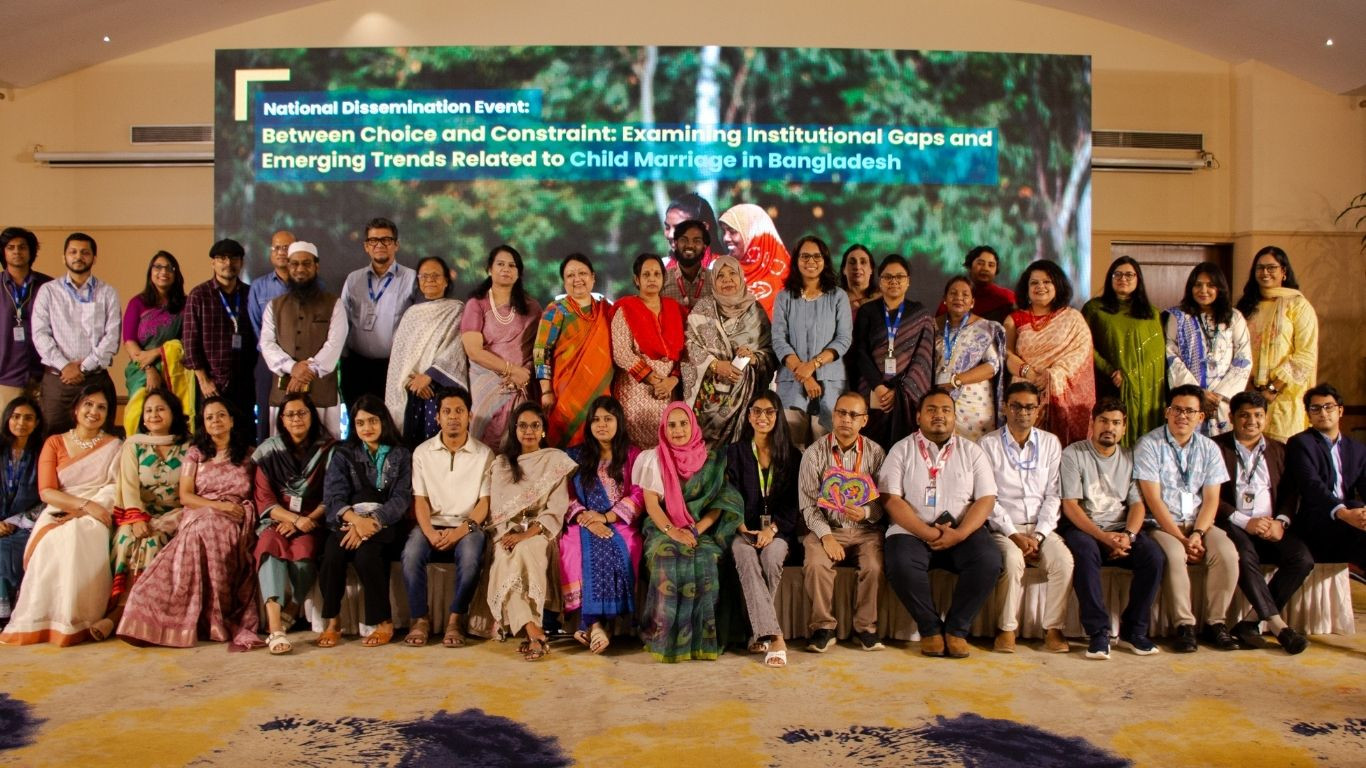Study finds rise in self-initiated child marriages in Bangladesh
Especially in urban and climate-vulnerable areas
Daily Sun Report, Dhaka
Published: 11 Nov 2025

Photo: Courtesy
A new national study revealed and discussed by Plan International Bangladesh at a high-level dissemination event in Dhaka has drawn attention to emerging trends reshaping the country’s child marriage landscape — notably the growing rate of self-initiated child marriages and the deepening link between climate vulnerability and early marriage.
The study, presented at the event titled “Between Choice and Constraint: Examining Institutional Gaps and Emerging Trends Related to Child Marriage in Bangladesh,” highlights that adolescents themselves are increasingly choosing to marry early, often without understanding the physical and emotional consequences, read a press release.
The discussions underscored that addressing this evolving reality requires a shift from awareness-based interventions to health-centred, coordinated, and system-driven solutions to accelerate Bangladesh’s progress toward ending child marriage.
Analysing child marriage across diverse contexts — including climate-vulnerable, border-adjacent, hard-to-reach, and urban slum areas — the research found that in settlements such as Dholpur, Dhaka, 32% of girls’ marriages and 11% of boys’ marriages were self-initiated, most by boys.
Nearly half of newly married girls become pregnant within a year, exposing them to higher risks of obstetric complications and perinatal deaths.
Speakers at the event, including representatives from the Ministry of Women and Children Affairs, Department of Youth Development, UNICEF, academia, and civil society, emphasised that weak marriage registration systems, falsified birth records, and climate-related livelihood insecurities continue to drive early marriage.
Plan International Bangladesh Country Director Kabita Bose said, “While working on child protection, we have seen that girls are disproportionately affected and often face violence. If we can address the discrimination girls face from birth, we can move closer to achieving true gender equality.”
The panel discussion also explored the intersection of law, enforcement, and social norms.
Dr Taslima Yasmin, associate professor of Law at the University of Dhaka, raised concerns about how the Child Marriage Restraint Act 2017 can be applied when adolescents choose marriage, stressing that penalties must not violate children’s rights.
Md Faruk Hossain, joint commissioner of Dhaka Metropolitan Police, called for stronger community coordination to prevent child marriages.
Youth representative Shirin Akhtar Asha emphasised the role of young people as change agents, while UNICEF and faith-based representatives highlighted the importance of engaging religious leaders to change community perceptions.
The study recommends strengthening Child Marriage Prevention Committees (CMPCs) at all administrative levels, reframing awareness messages to emphasise the health rationale behind the legal marriage age of 18, digitising marriage registration, improving SRHR and education services, and expanding livelihood support in climate-affected regions.
Plan International Bangladesh reaffirmed its commitment to working with government bodies, development partners, and community actors to ensure every girl can learn, lead, decide, and thrive in a society free from child marriage and gender inequality.

